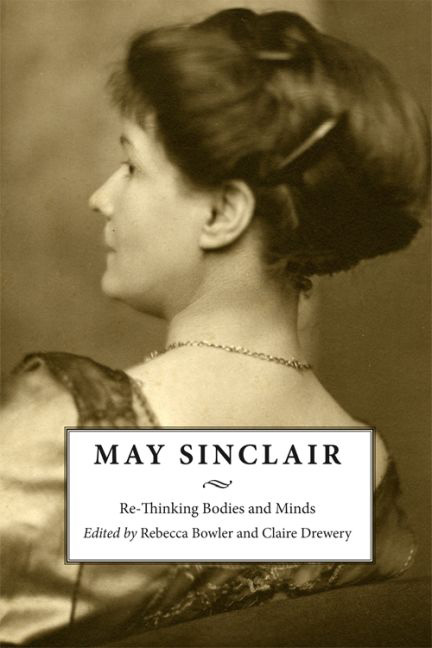Book contents
- Frontmatter
- Contents
- Acknowledgements
- Introduction: May Sinclair's Interdisciplinarity
- Part I The Abstract Intellect
- 1 ‘Dying to Live’: Remembering and Forgetting May Sinclair
- 2 Learning Greek: The Woman Artist as Autodidact in May Sinclair's Mary Olivier: A Life
- 3 Portrait of the Female Character as a Psychoanalytical Case: The Ambiguous Influence of Freud on May Sinclair's Novels
- 4 Feminism, Freedom and the Hierarchy of Happiness in the Psychological Novels of May Sinclair
- 5 Architecture, Environment and ‘Scenic Effect’ in May Sinclair's The Divine Fire
- Part II Abject Bodies
- Notes on Contributors
- Index
5 - Architecture, Environment and ‘Scenic Effect’ in May Sinclair's The Divine Fire
from Part I - The Abstract Intellect
Published online by Cambridge University Press: 26 May 2017
- Frontmatter
- Contents
- Acknowledgements
- Introduction: May Sinclair's Interdisciplinarity
- Part I The Abstract Intellect
- 1 ‘Dying to Live’: Remembering and Forgetting May Sinclair
- 2 Learning Greek: The Woman Artist as Autodidact in May Sinclair's Mary Olivier: A Life
- 3 Portrait of the Female Character as a Psychoanalytical Case: The Ambiguous Influence of Freud on May Sinclair's Novels
- 4 Feminism, Freedom and the Hierarchy of Happiness in the Psychological Novels of May Sinclair
- 5 Architecture, Environment and ‘Scenic Effect’ in May Sinclair's The Divine Fire
- Part II Abject Bodies
- Notes on Contributors
- Index
Summary
The Divine Fire(1904) was May Sinclair's third novel and the one that was to make her name. Ironically, as Suzanne Raitt notes, ‘The novel which made her both famous and relatively wealthy [is] a critique of the bookselling industry in which she was now earning her living’ (Raitt 2000: 77). Sinclair's novel is, in fact, an astute engagement with the commercialisation of modern life and consumer culture. This chapter will focus on how, within the confines of the realist novel and a fairly traditional plot, Sinclair uses carefully staged representations of architectural space to highlight the play between illusion and reality, exterior and interior, and the commercial versus the domestic. I explore how Sinclair utilises ‘scenic effect’ (Sinclair 1904: 276), in particular the vibrant imagery of modernity, such as the lighting and window displays of the new department stores, in order to create particular textual environments, and how these function to demonstrate the subtleties of Sinclair's commentary on the commercialisation of modern life.
The Divine Fireis the story of Savage Keith Rickman, ‘a cockney poet’ (24) who drops his aitches and is not ‘exactly what you'd call a gentleman’ (119). At the start of the novel, Rickman works at his father's bookshop and is sent to catalogue the private family library of Sir Frederick Harden. Sir Harden's daughter, Lucia, has requested the catalogue while her father is abroad, not knowing that her father has mortgaged the library to cover his debts. Rickman, however, does know this information and he knows also that Dicky Pilkington, to whom the library is mortgaged, is going to offer his father the opportunity to buy the Harden library cheaply. Rickman falls in love with Lucia and is tortured by the duplicity of his situation. When Lucia's father dies and she is forced to sell the library for far less than it is worth, Rickman walks out on his father and the bookselling business over the sale. His father ends up mortgaging the library and his death leaves the debt in Rickman's hands. Rickman's feelings of moral responsibility lead him to sacrifice everything in order to buy the library back for Lucia. He lives in squalor and almost starves to death in the effort to reclaim the library and, with it, Lucia's love.
- Type
- Chapter
- Information
- May SinclairRe-Thinking Bodies and Minds, pp. 98 - 116Publisher: Edinburgh University PressPrint publication year: 2017



